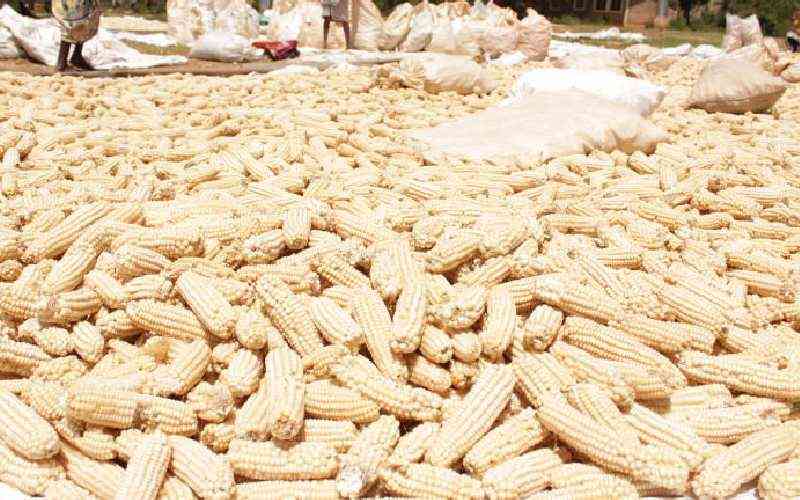×
The Standard e-Paper
Home To Bold Columnists

The quantity of imported maize in the second quarter of this year surged four-fold, pushing up the import bill for cereals in the first six months to a record Sh65.1 billion.
Data from the Kenya National Bureau of Statistics (KNBS) shows that Kenya imported 2.5 million 90kg bags of maize in the period between April and June this year, compared to 656,227 bags of the grain in the second quarter of last year.